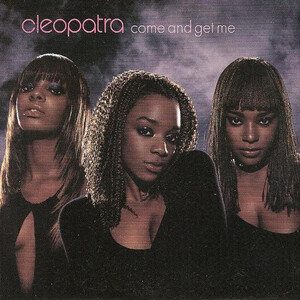Released: 27th November 2000
Writers: Cathy Dennis / Simon Ellis
Peak position: #1
Chart run: 1-3-3-4-3-6-12-18-29-35-38-42-48-50-53-75-X-X-X-X-69-70
Billboard Hot 100 chart run: 61-49-49-41-35-26-26-23-23-23-10-10-18-22-22-28-43-54-64-62
After releasing two singles from their second album, S Club 7 diverted the 7 campaign for Never Had A Dream Come True – a brand-new recording – all in the name of charity.

Though S Club 7 had enjoyed consistent success since their debut in 1999, Never Had A Dream Come True is a pivotal moment which marked the start of what many would regard as the group’s imperial phase. Until this point, they’d followed a well-established formula of showcasing material from their second album – 7 – to millions of viewers each week via a fictional TV series (L.A. 7 is widely reported as the most-watched CBBC show of all time). 7 duly earned S Club 7 their first #1 album, and the lead single, Reach, has endured as one of their signature hits. Indeed, it’s a sign of just how much the group dominated the charts that Natural was the first moment anything could be considered as going remotely awry when it entered at #3 to become their lowest-peaking release thus far.

If there was any concern behind the scenes (this was, after all, an era where even the slightest dip in chart positions caused record labels to panic), then Never Had A Dream Come True offered an immediate solution. The song – a brand-new recording that didn’t appear on the 7 album – had been used as the theme tune to the BBC documentary series S Club 7: Go Wild!, created in collaboration with the WWF. It was almost certainly going to be the next single regardless (there’s no indication that a different track was planned to be released); however, tying Never Had A Dream Come True to the annual Children In Need appeal was a shrewd move. Nobody could criticise S Club 7 for resorting to brand-new material months into the 7 campaign when the most likely outcome would be maximising sales for a good cause.

The idea of recruiting a contemporary pop act to release the Children In Need single was still a relatively recent one. Most until Martine McCutcheon the previous year had either been knowingly self-referential or novelty efforts; indeed, some, like Patsy Palmer and Sid Owen’s You Better Believe It (Children In Need), were a mixture of both. Indeed, Lou Reed’s million-selling all-star cover of Perfect Day in 1997 was the first time any Children In Need single had reached the top 20, let alone #1. Never Had A Dream Come True, thus, reflects how the concept had evolved. In essence, this is a charity song by association only. A cosy, vaguely festive-sounding ballad lends itself well to the sentiment, but take Children In Need out of the equation, and it would still exist in the same way. Indeed, that’s precisely what happened outside of the UK, where the track enjoyed considerable success in its own right.

Never Had A Dream Come True was co-written by Cathy Dennis, who worked extensively with S Club 7 throughout their career. She had a hand in all the other ballads they released as singles (Two In A Million, Have You Ever and Say Goodbye), which makes it difficult not to compare them. What Never Had A Dream Come True best demonstrates, though, is how well the group’s material was composed and selected to suit their need at that time. The track opens with an introspective rumination: “Everybody’s got something, they had to leave behind, one regret from yesterday, that just seems to grow with time…” which is ambiguous – it’ll mean different things to different people – but universally identifiable, nonetheless. Never Had A Dream Come True is an invitation to get lost in misty-eyed melancholy (“Somewhere in my memory, I’ve lost all sense of time (ah-ah-ah-ah), and tomorrow can never be, ‘cos yesterday is all that fills my mind”). The twinkling production – with tender guitars and stirring strings – almost has a seasonal chill running through it. However, things feel a little less bleak as the beat kicks in during the second verse, and the backing vocals become more prominent. Never Had A Dream Come True remains mournful, but the arrangement offers a warm – oddly reassuring – hug of sadness.

One of the main reasons the track is so sincere and engaging is because it’s performed, for all intents and purposes, by one voice. This is not the first time Jo O’Meara had been pushed to the forefront (she’d previously taken the lead on You’re My Number One and Two In A Million), but here, perhaps more so than on any other occasion, the rest of S Club 7 are firmly relegated to the role of backing singers. The track absolutely wouldn’t be the same without the layer of vocals woven beneath Jo’s voice: “There’s no use looking back or wondering (or wondering), how it could be now or might have been (or might have been), all this I know, but still I can’t find ways to let you go” but, at the same time, hers is the only one to stand out as being identifiable. That consistency, however, allows Jo to get under the skin of Never Had A Dream Come True; there’s a vulnerable resilience to her performance that conveys a devastating adult heartbreak. The desperation and growl of the middle eight: “You’ll always be the dream that fills my head, yes, you will, say you will, you know you will, oh, baby, you’ll always be the one I know I’ll never forget” is far beyond the innocent teen romance of songs like Two In A Million. It’s a moment of gravitas that reaches beyond the group’s usual target demographic, which, in hindsight, is why Never Had A Dream Come True worked incredibly well as a charity single.

That being said, the track is not afraid to pull all the levers that established S Club 7’s appeal in the first place. The soaring chorus: “I never had a dream come true, ‘til the day that I found you, even though I pretend that I’ve moved on, you’ll always be my baby; I never found the words to say (never found the words to say), you’re the one I think about each day (the one I think about each day), and I know no matter where life takes me to, a part of me will always be with you, yeah” flows effortlessly and with a rhyming familiarity that gave the group their lighters (or mobile phones)-in-the-air singalong ballad. A dramatic transition from the middle eight into a key change delivers on Never Had A Dream Come True’s anthemic potential. There’s never any risk of the track escaping from Jo O’Meara; it showcases the power and control of her voice without being oversung. Even the ad-libs never drift far from the core melody, meaning she can bring the song back to a comparatively understated outro: “A part of me will always be with you, ooh”, which is both an organic and cohesive conclusion to the song.

The music video for Never Had A Dream Come True is one of S Club 7’s simpler efforts but also one of their most effective and distinctive. A glitzy, big-budget extravaganza wouldn’t have been in keeping with the broader context of this as a charity single, so the concept is appropriately modest. It has S Club 7 styled in winter wear (fluffy boots and coats), performing the song in a white studio that’s intercut with footage of mountainous, polar landscapes. Yet, the editing and effects make the visuals feel so much more than the sum of their parts. Fake snow and whisps of cloud swirl around the group, while some of the shots have a sequined bead curtain in the foreground that twinkles and shimmers. In principle, it sounds naff, which could have easily been the case. But Never Had A Dream Come True commits to a ‘more is more’ approach; the scenic backgrounds frequently superimposed behind the group fade in and out of view due to how earnestly the wintry effects are applied. The result is an immediately recognisable video that captures both the mood and timing of the single, albeit in subtext only. There are no clips from Children In Need, nor is there anything overtly festive about the sequences, meaning Never Had A Dream Come True isn’t defined as being either a charity or a Christmas song.

The release of Never Had A Dream Come True remained close enough to Children In Need to benefit from the exposure that brought (though it was actually ten days after the annual telethon that year). It was also festive-themed – Perfect Christmas was included as a B-side – but never seriously in direct contention for the Christmas #1 (the battle that year was between Westlife and Bob The Builder). First-week sales of 144,000 saw Never Had A Dream Come True earn S Club 7 their second chart-topping single. Though it only spent a week at #1, the track remained in the top three throughout December, selling consistently to become the 9th biggest hit of 2000 (492,948 copies) and the 116th biggest-seller of 2001 with a further 108,090 copies. Including digital sales and streaming means Never Had A Dream Come True now has a combined total of 853,000 copies, making it S Club 7’s fourth-biggest single overall. Such was the positive reception at the time that the group were invited to partner with Children In Need again in 2001, which resulted in Have You Ever.

The 7 album was subsequently reissued to include Never Had A Dream Come True – re-entering the chart at #7 – and it initially seemed that the campaign may continue with Bring The House Down after several remixes were commissioned. However, any immediate plans for the UK were paused when Never Had A Dream Come True started to gain traction in America. It wasn’t entirely unexpected; there’d been attempts to build the group’s profile with both Miami 7 and L.A. 7 (re-named S Club 7 In Miami and S Club 7 In L.A.) broadcast on the Fox network, which resulted in the S Club album reaching #112. However, this was the first time any of their singles made an impact. After entering the Billboard Hot 100 at #61, Never Had A Dream Come True climbed steadily over several months to an eventual peak of #10 in May 2001 (which must’ve made the wintry-themed music video seem slightly jarring), picking up strong adult contemporary and mainstream airplay.

To promote the song, S Club 7 made several high-profile TV appearances on US television, which also saw 7 rise to a peak of #69. Yet, the group’s unrelenting schedule meant there was little time to consolidate that success; with the S Club Party Tour also commencing in May 2001 and a third series of their TV show (Hollywood 7) to shoot shortly thereafter, the decision was made to focus on a third album. And it’s probably true that releasing anything else from 7 at this stage would’ve been a step backwards when the group had Don’t Stop Movin’ readied as their next single.

While all of S Club 7’s ballads have their individual merits – some more than others – Never Had A Dream Come True is the benchmark against which all were subsequently judged, and with good reason. This song elevated the group to a different level of critical and commercial mainstream popularity. They were already big, but for a brief moment, S Club 7 were about to become more or less untouchable.



